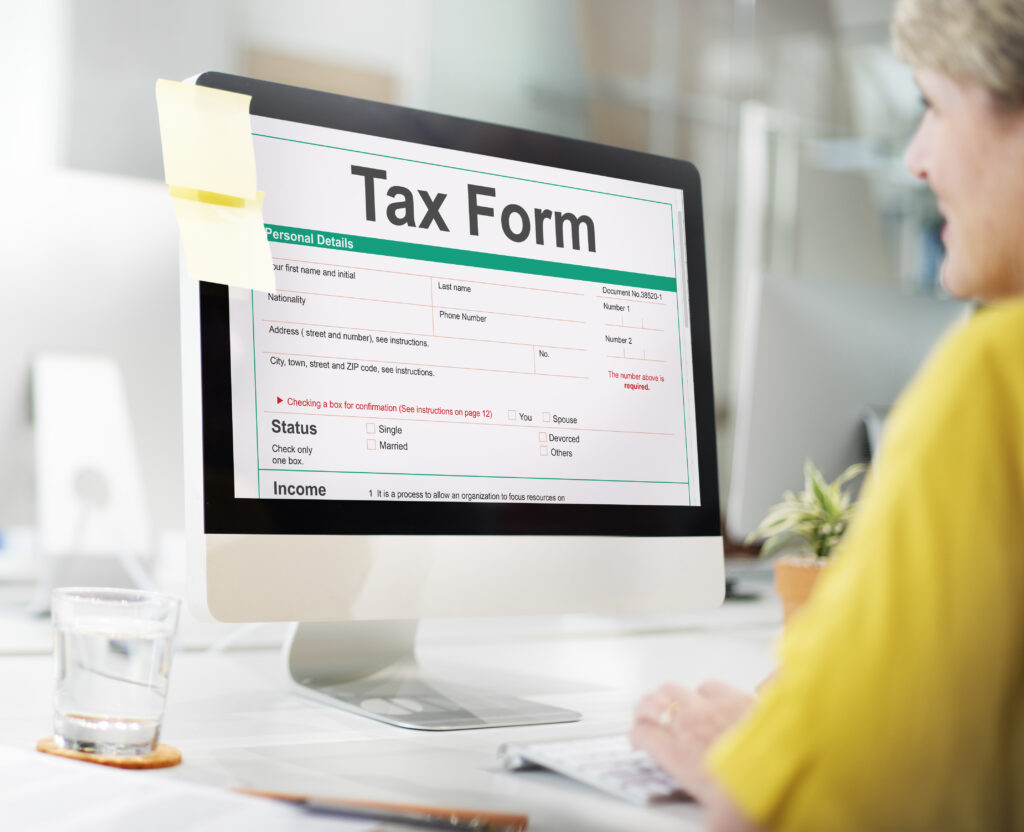Receiving an official-looking envelope from the IRS or a state tax agency can make your heart skip a beat. It’s a moment of anxiety for many, but your next move is critical. How you respond to a tax notice can have significant financial consequences, and making the wrong choice or no choice at all can turn a manageable issue into a major crisis.
This guide will walk you through the essential do\’s and don\’ts of handling tax notices. You will learn about the serious risks of ignoring these letters, the hidden dangers of paying without question, and why the single best step you can take is to consult a professional.
The High Cost of Inaction: What Happens If You Ignore a Tax Notice?
It might be tempting to set that unopened letter aside, hoping the problem will resolve itself. Unfortunately, tax authorities don\’t forget. Ignoring a tax notice is the most damaging action you can take, as it starts a cascade of enforcement actions that become progressively more severe.
Step 1: Automated Reminders and Mounting Penalties
Initially, the tax agency will send follow-up notices. Each letter will be more assertive than the last, and during this time, penalties and interest are accumulating on your supposed debt. What might have started as a small discrepancy can quickly grow into a substantial financial burden. The IRS, for example, can charge failure-to-pay penalties, interest on underpayments, and other fines that significantly inflate the original amount.
Step 2: The Intent to Levy
If you continue to ignore the notices, you will eventually receive a \”Final Notice of Intent to Levy.\” This is the last warning shot before the government begins seizing your assets to cover the debt. This letter is a clear signal that you are on the verge of forced collection, and it is crucial to act immediately at this stage.
Step 3: Wage Garnishment and Property Liens
Once the final notice period expires, the tax agency can legally take action to collect the money you owe. Two of the most common and disruptive methods are wage garnishment and property liens.
- Wage Garnishment: The IRS or state can order your employer to withhold a significant portion of your paycheck and send it directly to them. This happens without your consent and continues until the debt is paid in full. A garnishment can severely impact your ability to pay bills, cover living expenses, and support your family.
- Property Lien: A federal tax lien is a legal claim against your property, including your house, vehicles, and other assets. The lien serves as a public notice to creditors that the government has a claim on everything you own. It damages your credit score, makes it nearly impossible to sell or refinance property, and secures the government’s interest in your assets until the debt is settled.
Ignoring a tax notice doesn\’t make the problem disappear; it makes it exponentially worse. The path from a simple letter to garnished wages is a direct result of inaction.
The Pitfall of Panic: Why You Shouldn’t Pay Immediately
Faced with the threat of liens or garnishments, your first instinct might be to pay the amount demanded right away to make the problem go away. While this seems like a responsible solution, it can be a costly mistake. The Tax notices are not always correct.
Tax Notices Can Be Wrong
Tax agencies are large, complex bureaucracies that process millions of returns. Errors happen. A notice might be issued for several incorrect reasons:
- Processing Errors: Your tax return may have been entered into their system incorrectly.
- Uncredited Payments: A payment you made might not have been properly applied to your account.
- Identity Mix-ups: In rare cases, the notice might be intended for someone with a similar name.
- Outdated Information: The notice could be based on old information that has since been updated.
By paying without verifying the notice, you might be giving away money you don\’t actually owe. Once you\’ve paid, getting a refund for an incorrect notice can be a slow and difficult process.
You Waive Your Right to Appeal
Making a payment can sometimes be interpreted as an admission that you agree with the assessment. This could make it more challenging to dispute the notice later if you discover an error. Before you write a check or enter your credit card information, you must first confirm that the debt is valid and the amount is accurate.
The Smartest Move: Consult a Tax Professional
Whether you’re considering ignoring a notice or paying it immediately, there is a much better alternative: stop and seek professional help. A qualified tax professional, such as a CPA, Enrolled Agent, or tax attorney, is your best defense.
How a Professional Can Help
Bringing a tax notice to an expert provides immediate benefits. They can take the emotion and anxiety out of the situation and approach it with a clear, strategic mindset.
- Decipher the Notice: Tax notices are often filled with confusing codes and legal jargon. A professional can instantly understand what the notice means, why it was sent, and what the potential consequences are.
- Verify the Information: An expert will contact the tax agency on your behalf. They have the experience to speak directly with agents, access your account information, and determine if the notice is accurate. They can spot errors that you might miss.
- Develop a Strategy: If the debt is valid, a tax professional can explore all available resolution options. This might include:
- Installment Agreements: Arranging a manageable monthly payment plan.
- Offer in Compromise (OIC): Negotiating to settle your tax debt for less than the full amount owed, if you qualify.
- Penalty Abatement: Requesting the removal of penalties for a reasonable cause.
- Handle All Communication: Once you engage a professional, they can handle all future correspondence with the tax agency. This relieves you of the stress of dealing with collectors and ensures that every response is handled correctly and on time.
The Value of Peace of Mind
Navigating a tax dispute is stressful and time-consuming. By hiring an expert, you are not just paying for their technical knowledge; you are investing in peace of mind. They will manage the process from start to finish, protecting your rights and working to achieve the best possible financial outcome for you.
Your Next Steps After Receiving a Tax Notice
The next time a government envelope appears in your mailbox, don’t panic and don’t ignore it. Follow these simple steps:
- Read the Notice Carefully: Try to understand the reason for the letter and note any deadlines.
- Gather Your Records: Collect the relevant tax returns, receipts, and any other documents related to the tax year in question.
- Do Not Pay Anything Yet: Resist the urge to send a payment until you have confirmed the debt is valid.
- Call a Tax Professional Immediately: This is the most important step. A quick consultation can save you thousands of dollars and immense stress.
A tax notice is a problem that requires a solution, not a catastrophe. By addressing it promptly and with professional guidance, you can navigate the issue effectively and protect your financial future.
For more tips on managing tax notices, staying compliant, and keeping your finances stress-free, be sure to follow us or visit our website regularly for the latest updates and expert guidance.

